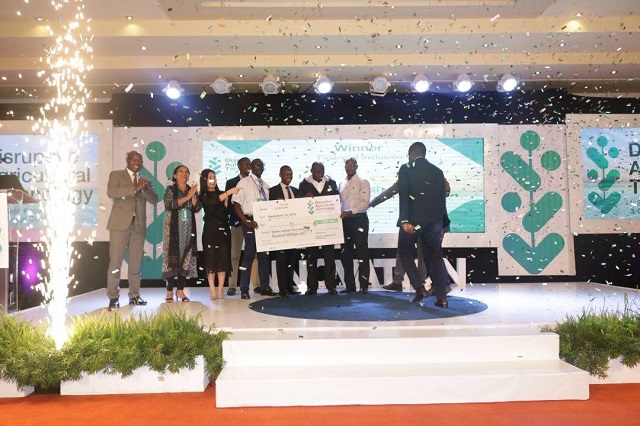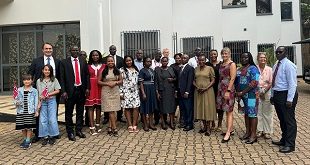
Kampala, Uganda | THE INDEPENDENT | A new generation of Ugandan entrepreneurs has won business opportunities with a flagship government project to help drive forward the digital revolution in agriculture.
At an event in Kampala this week, Uganda’s Ministry of Agriculture, Animal Industry, Fisheries (MAAIF), in partnership with the World Bank Group, announced the first cohort of promising Ugandan agricultural technology entrepreneurs to win support to scale up their businesses.
The winning innovators won “preferred vendor status” for Agriculture Cluster Development Project (ACDP), Uganda’s agricultural development project financed by the World Bank.
Agriculture represents more than a quarter of Uganda’s gross domestic product (GDP) and employs almost three-quarters of the workforce. Yet the sector has so far failed to benefit from digital technologies that can boost productivity and improve farmer livelihoods.
World Bank’s Practice Manager in charge of Agriculture in the Africa Region, Shobha Shettysaid Uganda already has a small but thriving start-up scene.
“We are working to channel that innovation toward agricultural solutions with the potential to positively disrupt how farming happens here for better livelihoods and prospects for all Ugandans.”
The start-up sector in Uganda is rapidly growing. It is said to have raised more than US$16 million in 2017, which represented a 53 per cent growth year on year.
Experts say the start up sector in Uganda is likely to be enormous but yet untapped. The start-up sector in Kenya reportedly raised close to US$147 million in the same in 2017.
Minister of Agriculture, Animal Industry and Fisheries, Vincent Ssempija said digital technologies promise to transform agriculture in Uganda to achieve our current goals, while preparing the country to face the challenges of the coming decades.
“But they need committed and directed investment. We are thrilled to be working with the World Bank to help unlock the enormous potential of Uganda’s agriculture sector.”
Disruptive technology can impact and advance every stage of the agricultural value chain. Mobile phone applications, artificial intelligence and automation are already driving change across the entire sector and can be harnessed to improve the yields and incomes of Uganda’s smallholder farmers and others along the value chain.
These new innovations can also overcome previous barriers to access for inputs like improved seeds or fertilizer, or services that help farmers get their produce to market.
Such advancements sit alongside developments in financial and advisory services as well as data analytics, all promising to improve the productivity of today’s farm.
The winning cohort of entrepreneurs included, M-Omulimisa for the productivity category, Akello Banker for Market linkages , M-Cash Uganda for financial inclusion category and Data Care for the data analytics category.
World Bank Country Manager, Tony Thompson said with with youth unemployment in Uganda as high as 13 per cent, disruptive technology has the potential to offer young people a greater variety of accessible, exciting and entrepreneurial employment options away from the manual labour of farming.
“From software design to value chain development, disruptive technologies both appeal to a generation of tech-savvy young people and make best use of their skills.”
Participants were chosen based on a set of selection criteria, including having tried and tested their technology on farmers; developed a proof of concept with a feasible business model covering at least two years; provided evidence of impact on productivity; showcased interaction with other ecosystem players; focused on smallholder and women farmers.
The winners, who received cash prizes will be invited to pilot and scale up their innovations within the ACDP, a US$150 million agricultural project to improve agricultural productivity and production to meet both unmet domestic demand and to expand exports.
******
URN
 The Independent Uganda: You get the Truth we Pay the Price
The Independent Uganda: You get the Truth we Pay the Price


